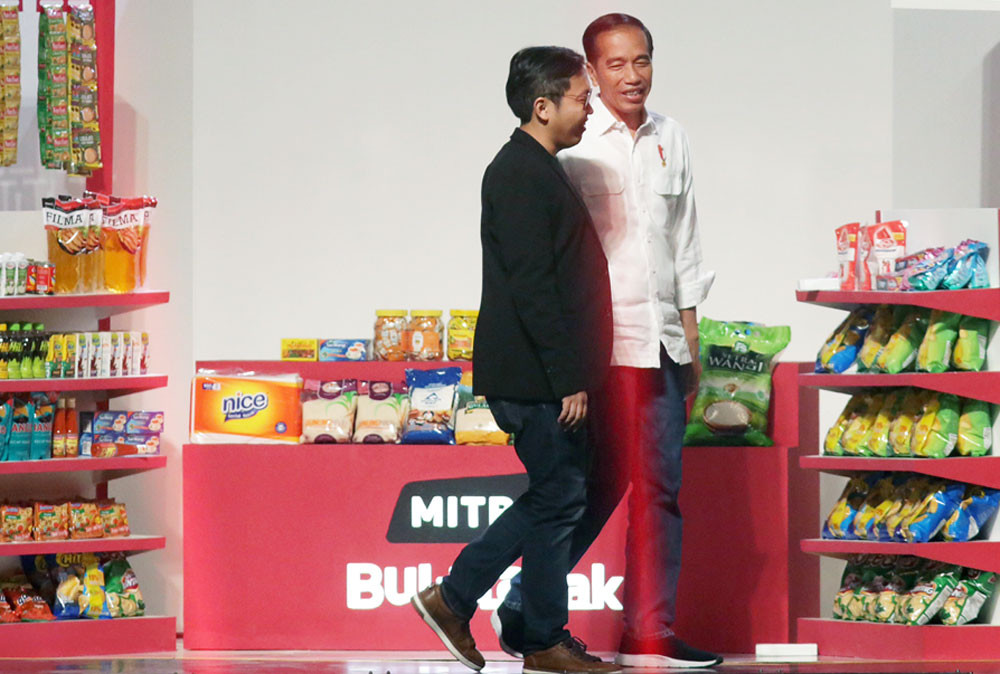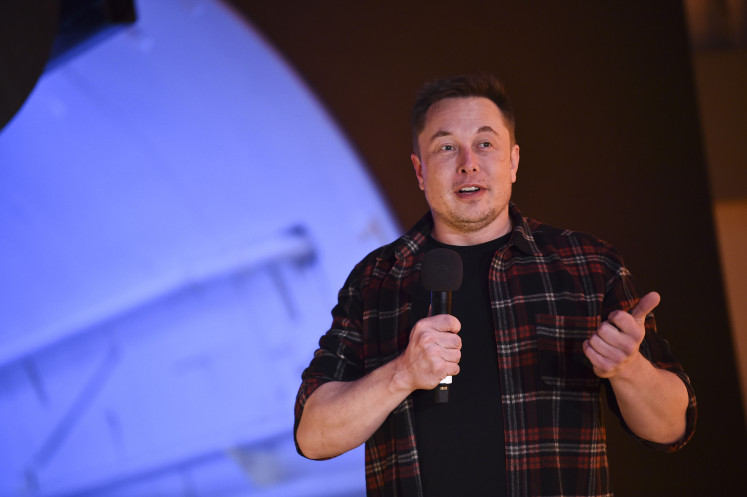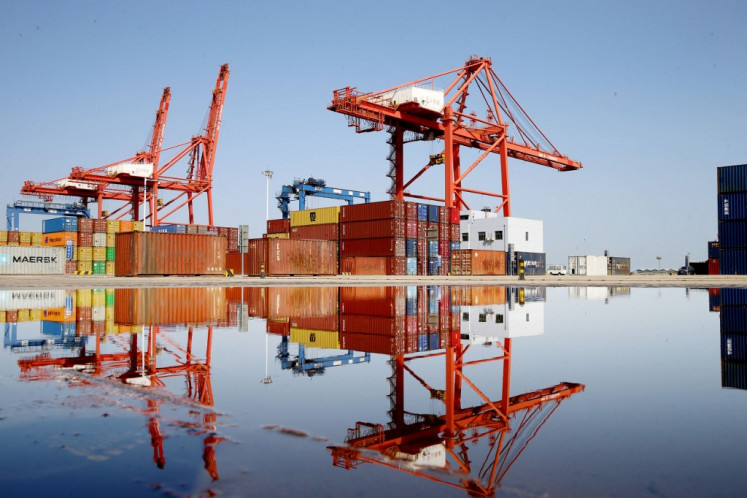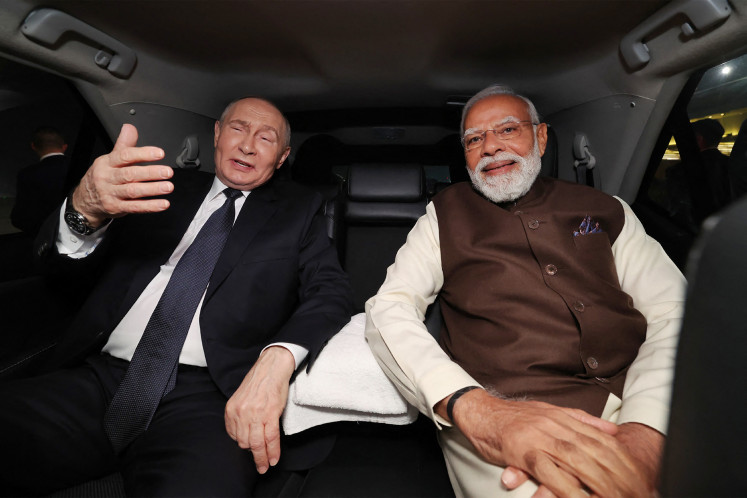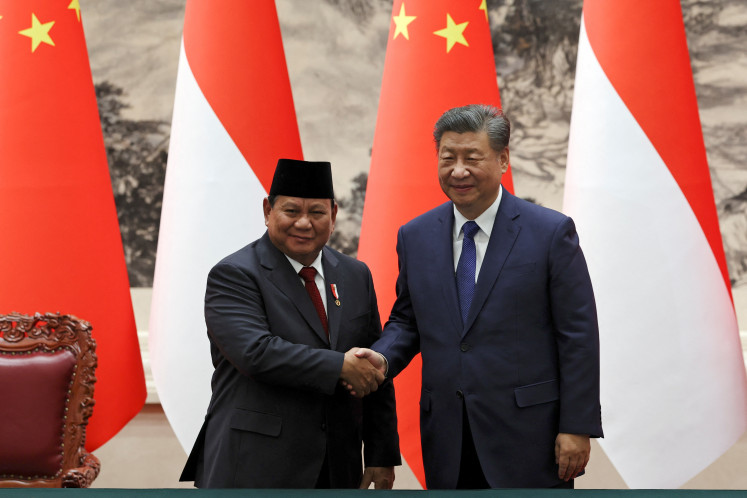Popular Reads
Top Results
Can't find what you're looking for?
View all search resultsPopular Reads
Top Results
Can't find what you're looking for?
View all search resultsWhy Twitter and CEO don’t mix: Lessons for Bukalapak CEO
Most CEOs don’t stand on the soapbox talking to the world, but when they do, they fail spectacularly and at times they have to pay dearly for it.
Change text size
Gift Premium Articles
to Anyone
U
nless you’re Donald Trump, Twitter only gives you the illusion of free speech. On this social media platform, you are free to speak your mind, until you aren’t. Compared to three or four years ago, Twitter is now a heavily policed environment, where hate speech, false claims and conspiracy theories could be struck down even without users filing a complaint about such violations. In past years, Twitter has unveiled a myriad of policies, ranging from a hateful conduct policy, rules against gambling to a regulation against what the company calls “dehumanizing speech". The last rule was used last year to justify a purge against conspiracy theory website Infowars run by far-right talk show host Alex Jones.
These new sets of rules have turned the social media platform into a relatively benign environment and the only thing that could prevent users from making a fool of themselves on Twitter is their own sense of self-importance, a quality that any CEO has in abundance. CEOs think that if they are successful in running companies and bringing in billions in revenue, they know how the world works and their skills could be used to run the public sector (Starbucks CEO Howard Schultz is the last in the long line of billionaires running for president). CEOs’ hubris makes them think that they know something we don’t and these days they could use Twitter to impart the knowledge and wisdom to the world.
Most CEOs don’t stand on the soapbox talking to the world, but when they do, they fail spectacularly and at times they have to pay dearly for it. Tech visionary, self-made billionaire and a prolific Twitter user Elon Musk is a cautionary tale about CEOs having too much to say and paying a terrible price for the habit. Last year, the US Securities and Exchange Commission slapped a US$20 million fine against Musk for making a statement on Twitter that he would take car making company Tesla private, among other outrageous statements. Following the Twitter statement, the share price of Tesla experienced a 30 percent freefall from $379.57 on Aug. 7, last year to $264.77 on Sept. 28.
Musk appeared to forget that with great power, comes great responsibility, that his words move markets. And considering that their company’s well-being could also be at stake, CEOs should choose their words carefully.
Elon Musk asked a judge to throw out a defamation lawsuit by a British caver whom the Tesla Inc. founder called a pedophile on Twitter. (Bloomberg/File)CEO and founder of Bukalapak Achmad Zaky appeared to have failed to learn this lesson and he and his $1 billion e-commerce platform had to pay the price over the weekend.
A prolific Twitter user, more often than not Zaky has been less than wise with his choice of words. Last month, when The Economist erroneously stated that Bukalapak was a Singapore-based firm, he took to Twitter to lash out at the publication by calling it stupid. The majority of his tweets are innocuous, but it shows that he is an impulsive type who needs to respond to online trends. Then he dropped the bombshell on Thursday night. In what appeared to be a spur-of-the-moment tweet, he called the government’s Industry 4.0 aspiration “nonsense” as Indonesia was behind other countries in terms of funding. But what riled people up, especially supporters of President Joko “Jokowi” Widodo, was how he capped off his 280 characters. “I wish the new president could improve this.”
I dont know why The Economist can be so stupid https://t.co/nrMgp6CpX5
— Achmad Zaky (@achmadzaky) January 14, 2019
The backlash was swift. By Friday morning, the hashtag #UninstallBukalapak was trending on Twitter, mostly driven by Jokowi supporters who were angry that Zaky and his company appeared to have wished the incumbent’s rival, Prabowo Subianto, wins the 2019 presidential election.
Zaky quickly backtracked, deleting his original tweet and issued an apology. It was too late. Before long, not only was the #UninstallBukalapaktrending but his brand was soon turned into derisive memes and parodies. One that was heavily circulating online was an anagram of the name Bukalapak, Lupabapak, which in Indonesian means forgetting your father. Zaky once considered Jokowi to be his father as they both hailed from Surakarta, Central Java.
The damage was so enormous that Jokowi himself stepped in to do damage control for Zaky. During a meeting on Saturday, Jokowi himself made the call for users to not delete the Bukalapak app from their smartphones. A bigger disaster has been averted and Bukalapak is retreating to count the losses from this public relations disaster. Bukalapak’s investors could now draw a sigh of relief and could only hope that a new policy could be put in place to reign in the company CEO’s Twitter habit. Or they wish that Zaky could keep his most brilliant Twitter-worthy ideas to himself and keep the company stable.
If only CEOs, billionaires and certain president could get off Twitter.

